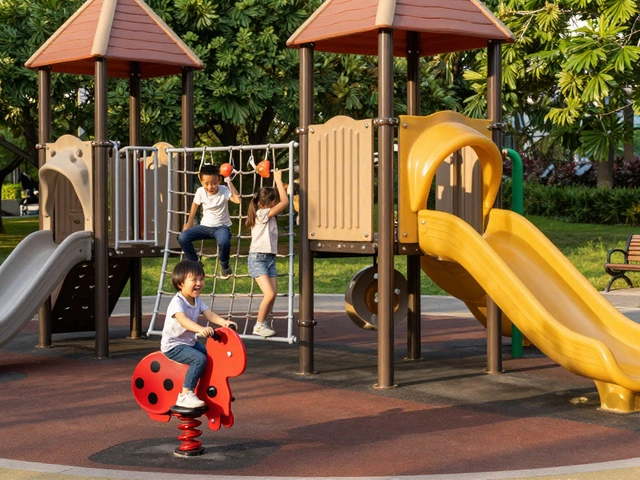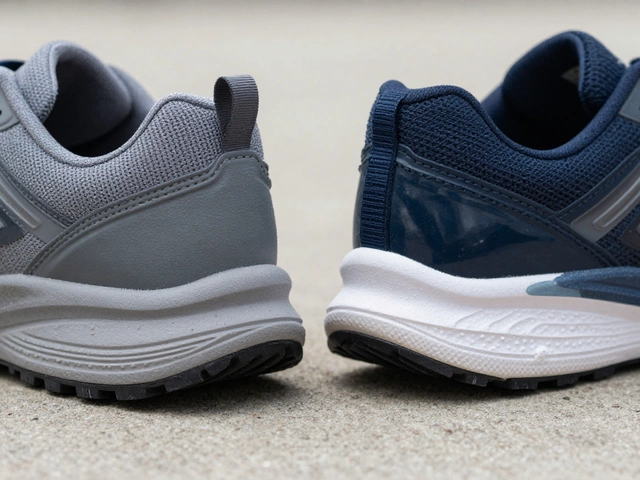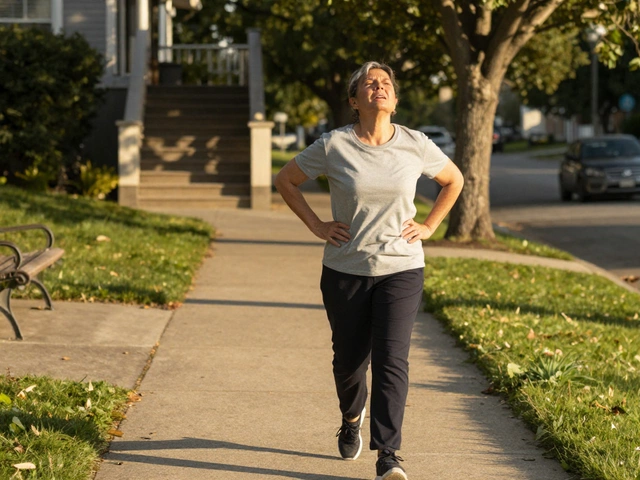Most Bike-Friendly City in Mexico: Where Cyclists Thrive
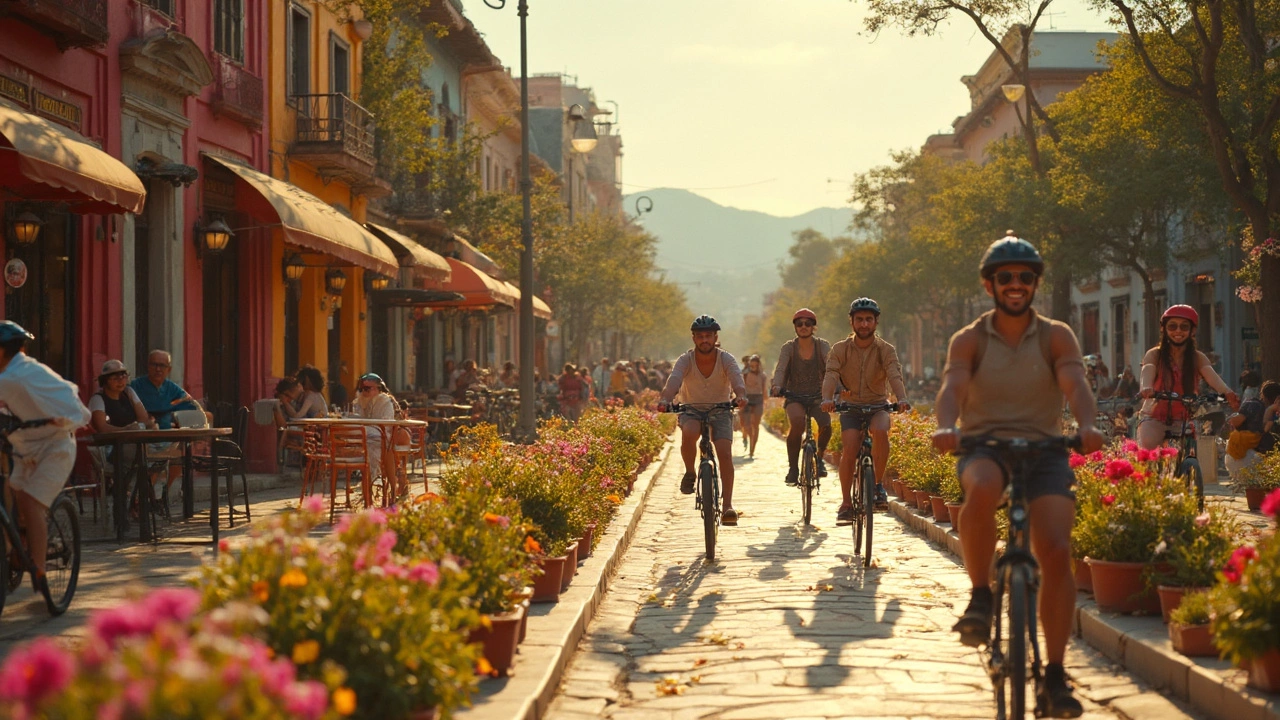
Imagine coasting through colorful neighborhoods, dodging tacos stands instead of traffic jams. Sounds awesome, right? Mexico has some seriously amazing cities for cycling, but they're not all created equal. If you're hunting for a place where bikes rule the streets, you've got options that might surprise you—and Mexico City leads the charge.
Forget what you think you know about riding in big urban spaces. The right city can totally change your outlook, with protected bike lanes, cool local rides, and even entire Sundays when cars are kicked off major streets for cyclists to take over. That's not just good for your workout—it's a game-changer for everyday life in the city.
Thinking about moving, visiting, or just cruising through on two wheels? Knowing which city actually supports your cycling habit makes a massive difference. Stick around and you'll find out which places are worth your attention, what sets them apart, and how to make the most of every ride.
- Why Cycling is Booming in Mexico
- The Top Contender: Mexico City's Bike Revolution
- Other Cities Chasing the Title
- What Makes a City Bike-Friendly?
- Tips for Safe and Fun Riding in Mexico
Why Cycling is Booming in Mexico
Biking isn’t just a hipster trend in Mexico anymore—it’s actually a smart way to get around. Over the past decade, more folks are ditching their cars and hopping on bikes, especially in big cities. The reasons? Simple: nightmare traffic, high gas prices, and a real push for cleaner air.
The government has noticed the benefits too. Since 2010, cities like Mexico City and Guadalajara have invested tons of money in new bike-friendly city plans. There’s been a surge in protected bike lanes, public bike-share programs like Ecobici, and even free bike clinics. On some weekends, car-free events called "Ciclovía" close major roads just for cyclists—some stretches cover more than 50 kilometers!
Check this out: In Mexico City alone, the length of exclusive bike lanes jumped from about 8 km in 2007 to over 200 km by the end of 2023. That’s huge. And it’s not just about exercise. During the pandemic, lots of people picked up cycling as a safer alternative to crowded buses and metro lines.
| Year | Bike Lane Length (Mexico City) |
|---|---|
| 2007 | 8 km |
| 2014 | 82 km |
| 2019 | 170 km |
| 2023 | 200+ km |
Toss in the health angle and it’s easy to see the appeal. Doctors in Mexico have started recommending cycling to fight air pollution, heart problems, and even stress. And with the city’s new bike repair stations popping up everywhere, you don’t even need to be a pro mechanic to keep rolling.
Add it all up, and it’s clear why cycling in Mexico isn’t slowing down anytime soon. If anything, the wheels just keep spinning faster.
The Top Contender: Mexico City's Bike Revolution
When people talk about bike-friendly cities in Mexico, it's hard to ignore how much Mexico City has changed in the last decade. What used to be a place where cars ruled the roads is now a trailblazer for cyclists. The city rolled out the massive Ecobici program back in 2010—basically, a super affordable bike share that now covers much of the city center and nearby neighborhoods. Last year, it clocked over 13 million trips. That’s not just tourists, by the way; locals are using these bikes to get to school, work, and even run errands.
One big reason people love Mexico City for biking is the Ciclovía. Every Sunday, major areas like Paseo de la Reforma and Avenida Insurgentes go car-free, turning these megaboulevards into spaces just for bikes, skates, and strollers. Seriously, it's a party on wheels, and you see families, pros, and total newbies all mixing it up. This encourages everyone to get out, get moving, and try cycling in Mexico's most famous city.
Safety has gotten a real boost, too. The city’s added over 200 kilometers of protected cycle lanes (that’s about 125 miles), making daily commutes less stressful and way safer. Routes are clearly marked, and some newer ones are even separated by barriers so you’re not playing dodgeball with traffic. The vibe is actually friendly—they call it "CDMX en Bici"—and there's a growing culture of respect between drivers and cyclists.
Here's how Mexico City stacks up on some important numbers:
| Feature | Amount |
|---|---|
| Protected Bike Lanes | 200+ km |
| Ecobici Stations | Over 480 |
| Ecobici Bikes | Almost 7,000 |
| Average Weekly Bike Trips | 250,000+ |
You also get easy connections. Mexico City's Metro lets you bring your bike in on weekends and certain hours during the week, so you’re not stuck cycling the whole way if the city feels huge. Oh, and if your bike breaks down? Local shops are everywhere, and mobile bike mechanics even pop up during Ciclovía events.
Honestly, Mexico City is setting the bar pretty high for urban cycling. Whether you’re in it for easy cycling routes, eco-friendly commuting, or just that Sunday morning buzz, this city shows how a mega-metropolis can put two wheels first.
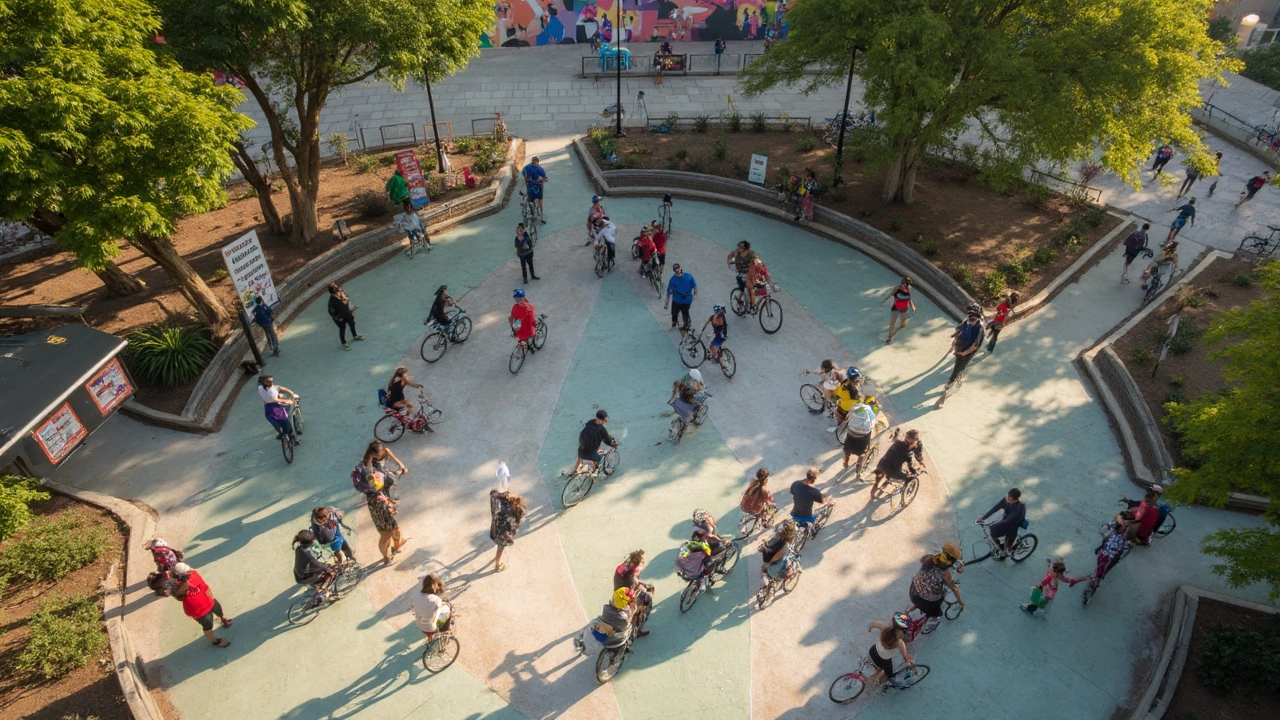
Other Cities Chasing the Title
Mexico City grabs the spotlight, but a few other spots deserve serious credit for being bike-friendly cities too. If you want a taste of local routes, easy cruising, and that unmistakable cycling vibe, check out these contenders.
Guadalajara has been busy boosting its bike infrastructure for over a decade. The city’s Vía RecreActiva happens every Sunday, where over 60 kilometers of roads close to cars. Thousands jump on their bikes, making it feel like a giant rolling party. The city also runs the MiBici bike-share program with more than 250 stations, so no worries if you don’t have your own wheels.
Puebla stands out for its flat, wide avenues and a growing network of dedicated bike lanes. The city has made it easier to pedal by launching protected lanes right through heavily trafficked areas. Their downtown is super compact, so it’s easy to get around quickly—great for commuters and tourists alike.
Can’t skip over Querétaro either. It’s gone all-in with over 40 kilometers of new cycling paths since 2017. Local government keeps adding to the network, sometimes involving local cyclists in planning, so you actually get paths that make sense, not just lines on a map. The city is pretty safe compared to bigger metros, which helps beginners feel comfortable on two wheels.
Looking for stats? Here’s a quick breakdown to compare:
| City | Bike Lane (km) | Bike-Share Stations | Main Event |
|---|---|---|---|
| Guadalajara | 100+ | 250+ | Vía RecreActiva |
| Puebla | 60+ | 60+ | Ciclovías Dominicales |
| Querétaro | 40+ | n/a | Critical Mass Rides |
If you want a different vibe than the capital, these places mix strong cycling in Mexico with local flavor. Each has its own approach—some focus on Sunday street takeovers, others on daily commuting. Either way, pack your helmet. Adventure starts wherever the bike lane leads.
What Makes a City Bike-Friendly?
So what does it take for a city to earn that "bike-friendly city" badge? It's not just about tossing down a few painted lines on the road and calling it a day. Real change comes from stuff you notice every time you ride—the kind that makes your life easier and your trips safer.
First up, a killer cycling in Mexico city needs a proper network of protected bike lanes. These aren't just painted stripes; we're talking raised curbs or physical barriers separating you from the honking traffic. Mexico City gets it right with over 200 km of actual cycle tracks, and Guadalajara isn't far behind, making it less scary for new riders to join the fun.
Safety matters as much as convenience. That means drivers are used to seeing bikes and know how to share. Some cities even train bus and taxi drivers on how to treat cyclists right—pretty smart move, right?
It also helps when you have:
- Plenty of bike parking (think racks everywhere, not just downtown).
- Bike-share systems like Mexico City's EcoBici so you don’t have to own or drag your own ride everywhere.
- Cyclist-friendly traffic signals and signs—so you don’t get trapped by endless red lights or weird intersections.
- Best cycling routes that connect important places for work or fun—not just a path to nowhere.
Events and community are huge, too. Mexico City shuts down major boulevards every Sunday for Muévete en Bici, turning regular roads into a bike party with thousands rolling together. That’s the kind of support that changes habits and makes cycling a real everyday thing, not just a hobby.
| Feature | Why It Matters |
|---|---|
| Protected bike lanes | Keeps you safe from cars and buses |
| Bike-share programs | Makes biking easy for everyone, even without your own bike |
| Secure bike parking | No need to worry about theft at work, school, or shops |
| Community support | Makes cycling normal, not a hassle |
Bike-friendly isn’t just about what’s on the street. It’s about everyone—from city planners to local shopkeepers—getting onboard and making life better for anyone who prefers two wheels over four.
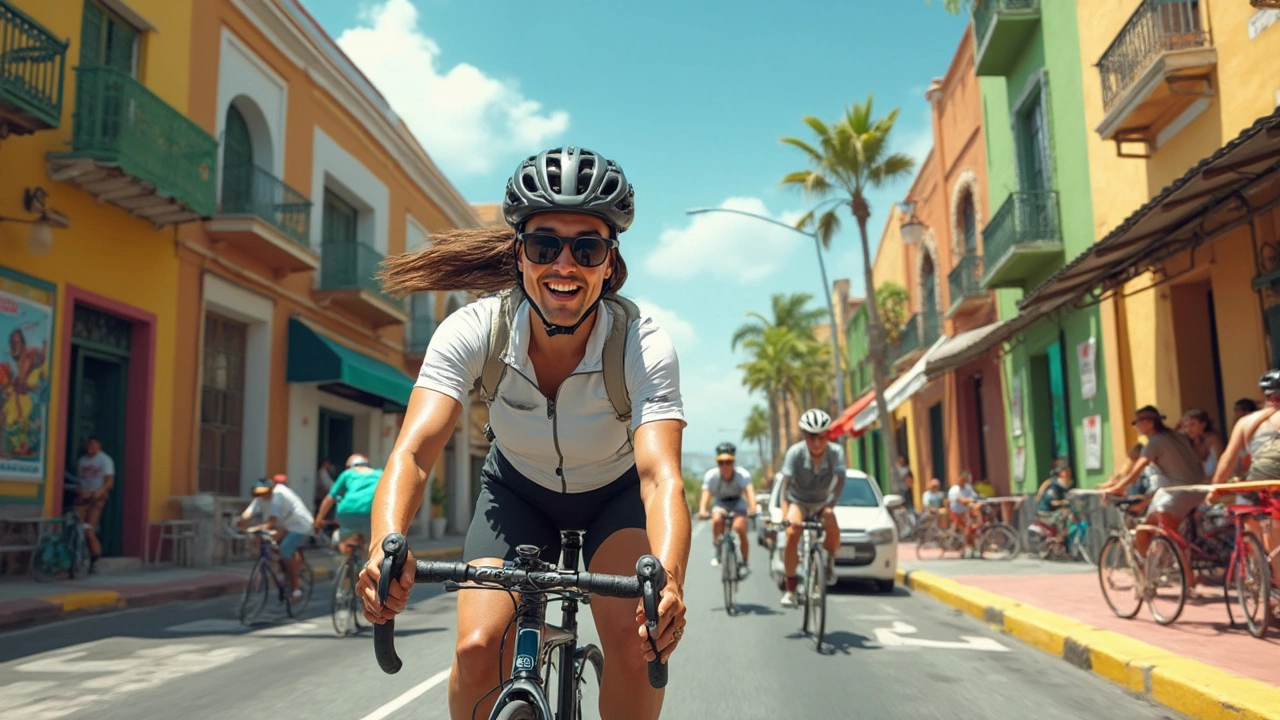
Tips for Safe and Fun Riding in Mexico
It’s easy to get caught up in the excitement of cycling in Mexico, but safety has to come first if you want your rides to stay awesome. Mexican cities can be unpredictable—one street might feel super chill and the next could be wild, so it pays to be ready.
First up, know your routes. Many Mexican cities are working on improving their bike infrastructure, but not every lane is created equal. In Mexico City, for example, there's over 200 km of dedicated bike lanes (ciclovías), while cities like Guadalajara and Monterrey are catching up with newly built networks. City cycling maps are available online and as free apps—apps like Biko or Google Maps (in cycling mode) help a lot for real-time info.
Stick to main cycling paths like Reforma in CDMX or Avenida Vallarta in Guadalajara. If you're new, join “ciclodía” events—on Sundays, whole main roads shut out cars for bikes, which makes for an easy, worry-free ride.
- Watch out for speed bumps (topes) and potholes. Mexican streets are full of them, especially outside tourist areas.
- Wear a helmet. You're not required by law everywhere, but you'll feel better knowing you’re protected.
- Don’t forget the basics: carry water, sunscreen, and a patch kit just in case—you don’t want to get stranded.
- At night, go bright and flashy. Front and back lights are a must. Reflective vests and ankle bands make cars spot you sooner. Local shops sell these cheap, so there's no excuse.
- Lock up your bike. Bike theft happens, even in the best bike-friendly cities. U-locks are your friend.
- Know a bit of Spanish. It’s handy if you need to ask for directions or get help from locals. Key phrase: "¿Dónde está la ciclovía más cercana?" (Where is the nearest bike lane?)
Bike-share systems are popping up everywhere. Mexico City's ECOBICI has over 6,000 bikes and 480 stations, and Jibi2Go runs strong in Puebla. A table below compares some top bike-share systems by city:
| City | Bike-Share Name | Bikes | Stations |
|---|---|---|---|
| Mexico City | ECOBICI | 6,500+ | 480+ |
| Puebla | Jibi2Go | 450+ | 70+ |
| Guadalajara | MiBici | 2,600+ | 274+ |
Lots of cyclists use these to explore without worrying about repairs or carrying a bike on public transit. Just remember to return bikes to a docking station—fees can add up if you leave them out past your rental time.
Most important, ride like everyone around you is distracted—that goes double for buses and taxis in city centers. Defensive cycling isn’t just smart, it’s what keeps you enjoying those city rides instead of ending up with a busted wheel (or worse). Stay alert, have fun, and enjoy discovering Mexico’s growing cycling spots!

